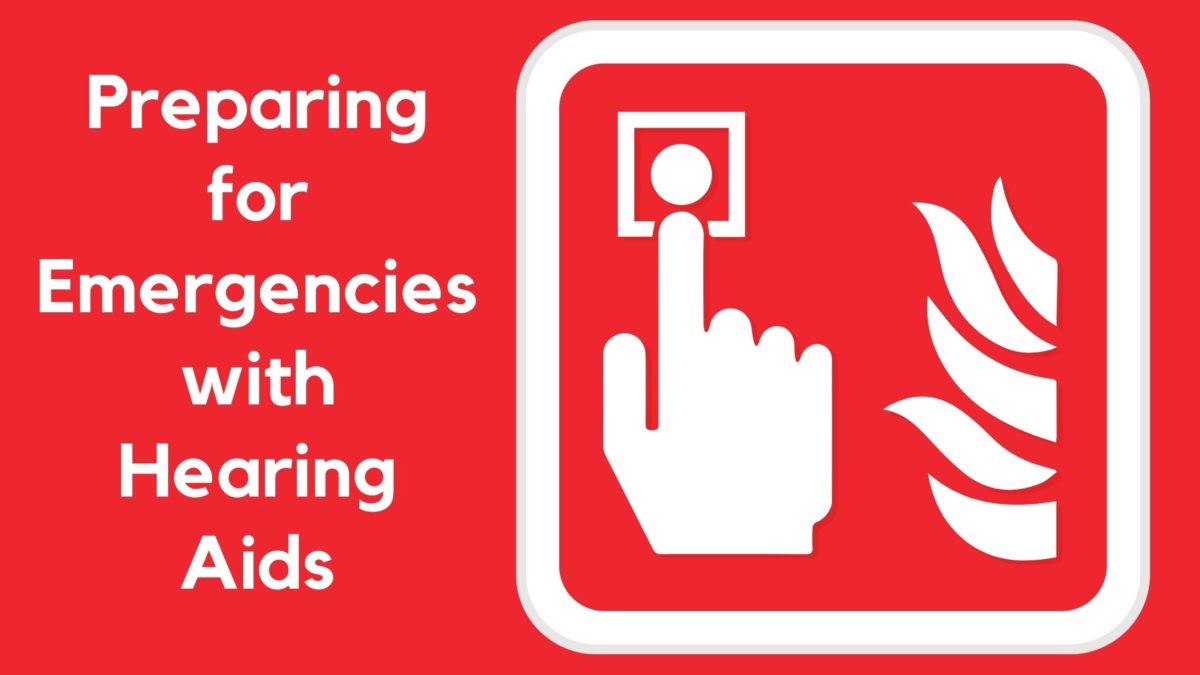- As an Invisible Condition, Hearing Loss Often Goes Ignored - October 17, 2022
- All About Assistive Listening Devices & More - October 1, 2022
- Tired of Loud Restaurants? Time for a Hearing Test! - September 17, 2022
Although most of us would much rather be optimistic and not think about it, emergencies can and do happen. Extreme situations can develop quickly and have a devastating impact. Being prepared can make all the difference when it comes to getting through a disaster. If you have hearing loss, this involves making some special preparations to make sure you stay in the loop and stay safe.
Set up your message systems
The first step in your emergency plan is to make sure you know when something is happening. It’s good to engage multiple alerts for this, such as an emergency weather alarm, reverse 911 alerts, text alerts, and vibrating “bed-shaker” alarms.
The NOAA weather alert system operates on its radio band, issuing emergency weather information. Emergency radios with the NOAA weather band can be equipped with multiple features, including visual, text, and vibrating alerts for those with hearing loss.
Alongside access to the NOAA system, check with your local government to see if they offer “Reverse 911” services where you receive an alert or other notification in the event of danger. Other apps and networks can fill the gap if reverse 911 notifications are unavailable – the SAME system allows users to customize the type of alerts they wish to receive and the area they wish to monitor.
Alongside emergency systems, chat with your school, church, or workplace to see if they have an emergency network and services to alert people with hearing loss. Try to establish a plan with your closest contacts to be in communication in an emergency.
Maintain power
People with hearing loss need to include unique resources in their emergency plan. If you wear a hearing device, plan on keeping a spare supply of batteries, at least enough for a month of use, in a prepared emergency bag. For recharging batteries, consider getting a portable power pack in case of extended periods without electricity.
If you have severe to profound hearing loss, keep a notebook and several writing tools in your emergency kit if you need to communicate but cannot hear. Similarly, you may want to get an emergency communication card for conveying questions and information quickly.
Keep your home on alert
There are several fire and smoke alarms that are designed for use by those with hearing loss. Loud sounds, visual signals, and even vibrations are used by these devices to warn you in an emergency or routine situation. And when you are not wearing your hearing aids, the use of these alerting devices can help you feel more protected from health and safety threats in your everyday life.
Make sure battery-powered bed shakers and flashing alarms have power and work at full strength when activated.
Keep connected to your social networks
Connecting with other people is an essential part of accessing help and staying safe. When you plan for an emergency, it’s essential to share your plan with your social contacts. Ensure that you have at least two local contacts and one non-local contact that you check in with in the event of an emergency. Your networks of family, friends, trusted co-workers, and local disability access advocates could be the people you build emergency contacts with.
In the advent of a local emergency, you can keep in contact with each others’ situation. In the event of power outages and loss of cellular services, these contracts should be among the first people to reach when services are restored. Your network can also contact authorities if you fall out of contact or think you are in danger during an emergency event.
Get prepping
Whether or not you have hearing loss, there are some supplies that everyone should keep on hand just in case of emergency:
- Bottled water
- Non-perishable, sealed protein- and energy-rich snacks
- Several days’ worth of any medication you need
- Copies of necessary paperwork and identification
- Spare keys to your house and vehicle
- Spare charger or rechargeable power pack for your phone
- A small first aid kit
- $100 in small bills
- An LED flashlight or headlamp
- Extra batteries for hearing devices
- A pen and paper
Seal all items in waterproof plastic baggies to keep them safe from weather damage. Keep a jacket that is appropriate for the coldest temperatures in your area near your emergency bag. If your home needs to be evacuated quickly, this kit will be easy to grab and will provide you with the basics of what you need when you reach safety.
It would help if you also had a supply of emergency resources at your home. This is similar to preparing your emergency bag, but on a grander scale, planning for at least 1-2 weeks with limited access to water, power, first aid, and supplies.
Proper preparation prevents poor performance
With proper preparations, you can significantly reduce the anxiety and chaos of an emergency, even if you have challenges with your hearing. If you need to upgrade your assistive living devices or hearing aid to better prepare for the unexpected, contact us today.

